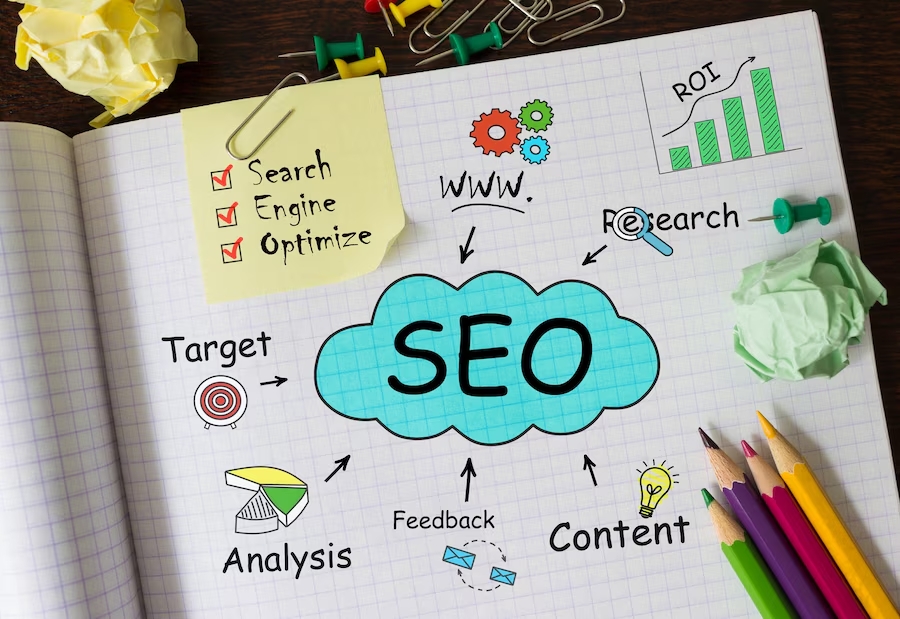Home / Blogs Detail

The Ultimate Guide to Building a Successful B2B SEO Strategy
Learn how to develop an effective B2B SEO strategy that aligns with the buyer journey. Explore key practices for keyword research, content creation, on-page optimization, and measuring success to enhance your online visibility and drive conversions.
Understanding the B2B SEO Strategy and Its Impact on SEO
When creating an SEO strategy you need to understand the B2B buyer journey. B2C buyer journey is quick and emotional, B2B is longer, more complicated and more decision makers.
The B2B buyer journey typically consists of three stages: awareness, consideration, and decision. Customers start to identify a need or issue and begin to research during the awareness stage. At this point SEO should focus on informative content and industry problem keywords. Whitepapers, guides and blog posts fall into this category.
During the consideration stage, buyers evaluate different solutions. Here, your content should be more detailed and focused on showcasing your expertise and how your solutions can address their specific needs. Case studies, comparison guides, and product demos are effective at this stage.
During the decision phase buyers are choosing. Content that builds trust (product pages, user reviews, calls to action) should be the focus of SEO.
You can engage readers at every stage of the B2B buyer journey by SEOing to them. Conversions, engagement and quality leads will follow.
Conducting Keyword Research for B2B: Finding the Right Terms
B2B SEO keyword research requires more than just finding high volume keywords. Find keywords that bring in visitors and match the needs and intent of decision makers.
Recognize your target audience and the issues they are attempting to resolve before anything else. B2B buyers are searching for solutions to intricate problems and speak in industry-specific language. Use tools like Google Keyword Planner, SEMrush or Ahrefs to find your keywords. Also look at long tail keywords that match more specific search intent. They may have lower search volume but are often more profitable as they attract ultra targeted traffic.
B2B transactions necessitate giving serious thought to the different stages of the buyer journey. Examples of phrases that would be more instructive at the awareness stage are "best practices in [industry]." But during the decision-making process, more transactional keywords might be used, like "top [product] vendors."
Competitor analysis can also be useful. See which keywords your competitors are ranking for and how you can go after similar terms or gaps they haven’t covered.
Creating High-Value Content That Drives B2B Conversions
B2B conversions since you’re talking to your audience. B2B content has to be instructional, data-driven, solution-focused.
Know your audience’s problems first. Make deep solution-focused content that helps with decision making. White papers, case studies, industry reports, how-to guides are examples of this. This kind of material demonstrates your expertise and how your good or service can help them with their issue.
Make sure your content is tailored to different stages of the buyer journey. For example, early-stage content might focus on educational topics, while mid-stage content could delve into comparisons or detailed product information. Testimonials or success stories for the decision stage
CTAs to next step (download report, sign up for webinar, contact your sales team) and update and optimize regularly. B2B you can generate leads, build relationships and convert by producing content regularly.
Optimizing On-Page SEO for B2B Websites: Best Practices
B2B website optimization is best way to get more audience. Unlike B2C sites, B2B sites have longer sales cycles and more complex decision making processes so targeted optimization is critical. Start with keyword optimization.
Use industry specific and long tail keywords that match your target audience’s search intent. Make sure these keywords are naturally woven into your content, titles, headings, meta descriptions and body copy
Content is key. Educate, educate, educate to your audience. Provide case studies, statistics, and useful information to build credibility. Ensure that every page has a user experience (UX) that is optimized with a clear structure, simple navigation, and quick loading times.
Technical SEO elements like meta tags, image alt texts, and URL structures should also be optimized. Meta titles and descriptions are key to CTR. Make sure your site is mobile. B2B’ers are mobile.
Another is internal linking which helps search engines crawl and helps users navigate your site. And to stay ahead of algorithms and consumer demand update your content and SEO often.
Measuring Success: Key Metrics and Tools for B2B SEO
Track your key metrics to make data driven decisions on B2B SEO. First, how many people visit your website organically – i.e. through search engines. This will give you an idea of overall visibility.
Grasp your site for specific phrases requires a grasp of keyword rankings. You can see what keywords are driving traffic to your site and how your rankings change over time with Ahrefs, SEMrush and Google Search Console.
Lead gen metrics like form submissions or contact form inquiries will tell you how well your SEO is converting visitors into leads. Analyzing conversion rates alongside organic traffic can provide insights into the quality of the traffic you're attracting.
Bounce rate and session length. If high or low. Your content not meeting expectations.
Moz or Ahrefs will show you how many and what kind of links are pointing to your website which affects rankings and authority.
Google Analytics to check these and adjust will get you better results and more from your B2B SEO.






